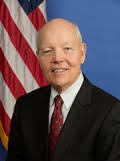 Just a week prior to April 15th, also known as “Tax Day”, John A. Koskinen, the Commissioner of the Internal Revenue Service spoke at the gathering of the Urban-Brookings Tax Policy Center in Washington, D.C.
Just a week prior to April 15th, also known as “Tax Day”, John A. Koskinen, the Commissioner of the Internal Revenue Service spoke at the gathering of the Urban-Brookings Tax Policy Center in Washington, D.C.
Koskinen spent a lot of time discussing the operational hazards of running the agency with less funding. The funding has resulted in a significantly smaller workforce. The IRS has 13,000 less full time employees this year than in fiscal year 2010.
Some of the highlights of Commissioner Koskinen’s remarks were:
- Lower Audit numbers: The IRS simply has fewer skilled auditors than it needs to audit the percentage of returns that they have in the past. While many in the public consider that a “plus”, within the agency, there are fears that audits will take significantly longer. Koskinen also remarked on having fewer specialized auditors within the agency and how that affects the auditing process.
- Poorer capacity for service: The Commissioner was very frank in his description of waiting times and inability to provide website help. As it is, taxpayers cannot get questions answered that are relevant to only them via email. The Commissioner also expressed dissatisfaction in not being able to upgrade software and internet interactivity to reflect best practices in the industry.
- Poor timing of decreased funding: Tax filing was made somewhat more complicated this year with the IRS now being the agency of record to ensure compliance with the Affordable Care Act (as well as the Foreign Account Tax Compliance Act). These significant changes added a level of complexity at precisely the time when there were fewer staff members to interact with the public and with professional tax preparers and tax attorneys.
- Decreased ability to raise revenue: Commission Koskinen supplied this figure: Every $1 spent in the IRS budget leads to $4 in collections. Koskinen was clearly frustrated that the agency was going to fall short in raising revenues that were already targeted in federal budget plans.
- Effects of budget cuts on voluntary compliance : Another possibility is that taxpayers will believe that the IRS doesn’t have the ability to track down cheating. If this happens, voluntary compliance will decrease at precisely the time that auditing is also decreasing. Koskinen said that when compliance drops by 1%, that translates into $30 billion in lost revenue.
Commissioner Koskinen did however praise the work of the underfunded agency and pointed to two recent improvements: the ability to get a tax transcript (which is utilized by many loan originators as well as the student financial aid system) and the “Where’s My Refund?” tracking program.
Dawda Mann attorney Jeffrey D. Moss states, “With less employees at the IRS, our clients and their tax preparers found wait times to be longer and information processing to take longer. The IRS is going to need improved technology and computers as well as more human power in order to upgrade the “service” in the Internal Revenue Service. The IRS is also making gains in creating streamlined programs for charitable organizations and more online filings.”
For further reading, you may refer to Commissioner Koskinen’s full remarks.

